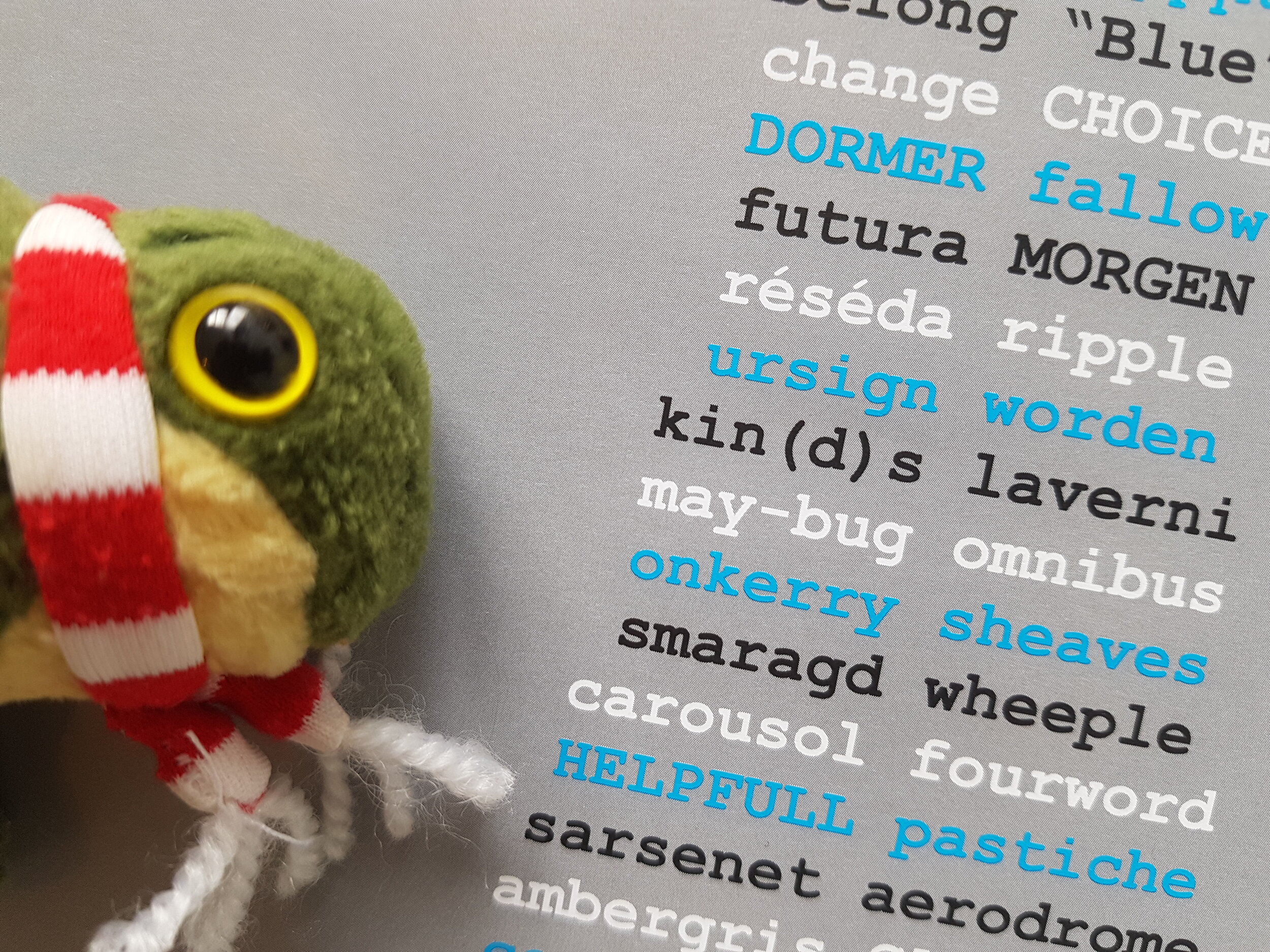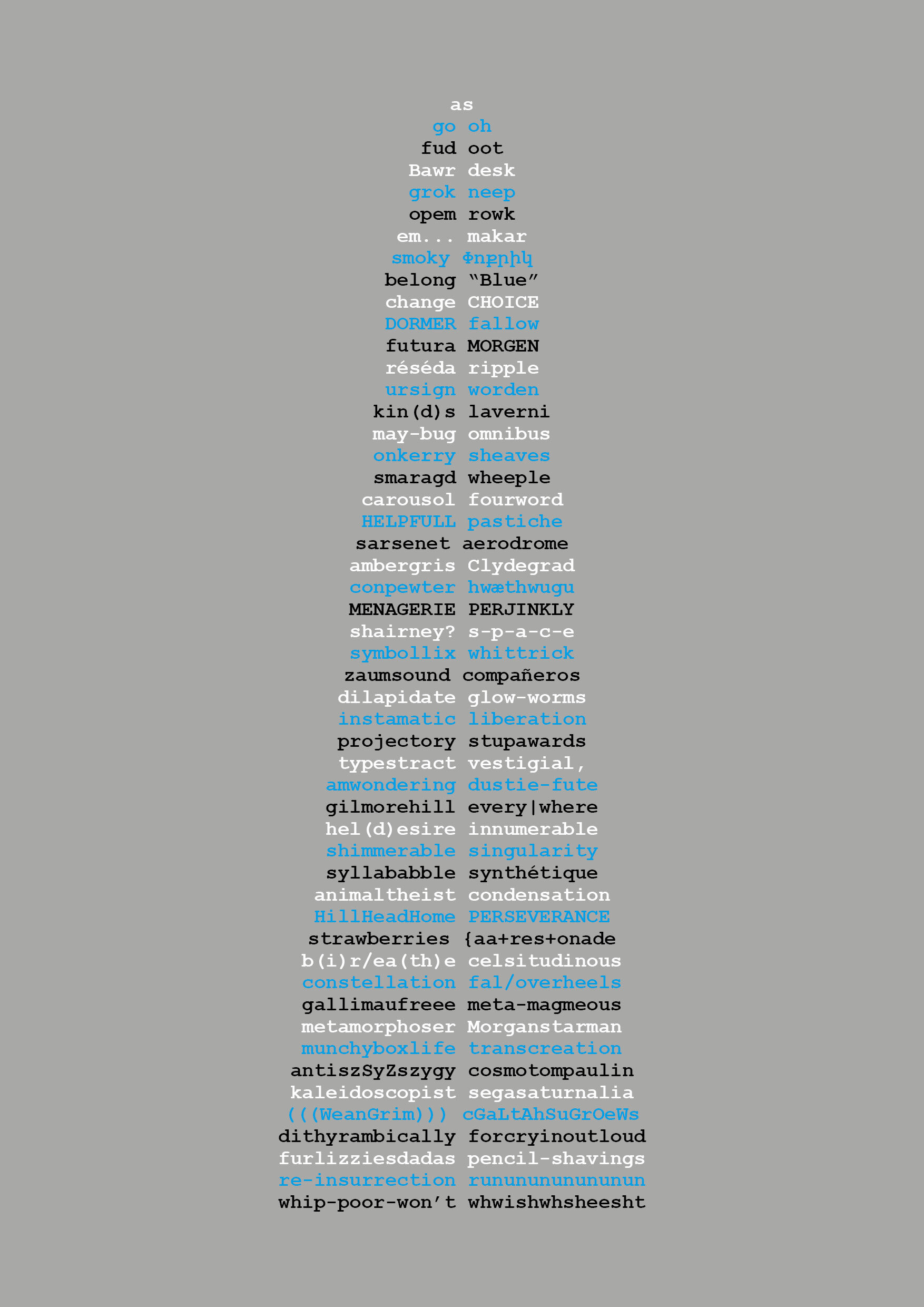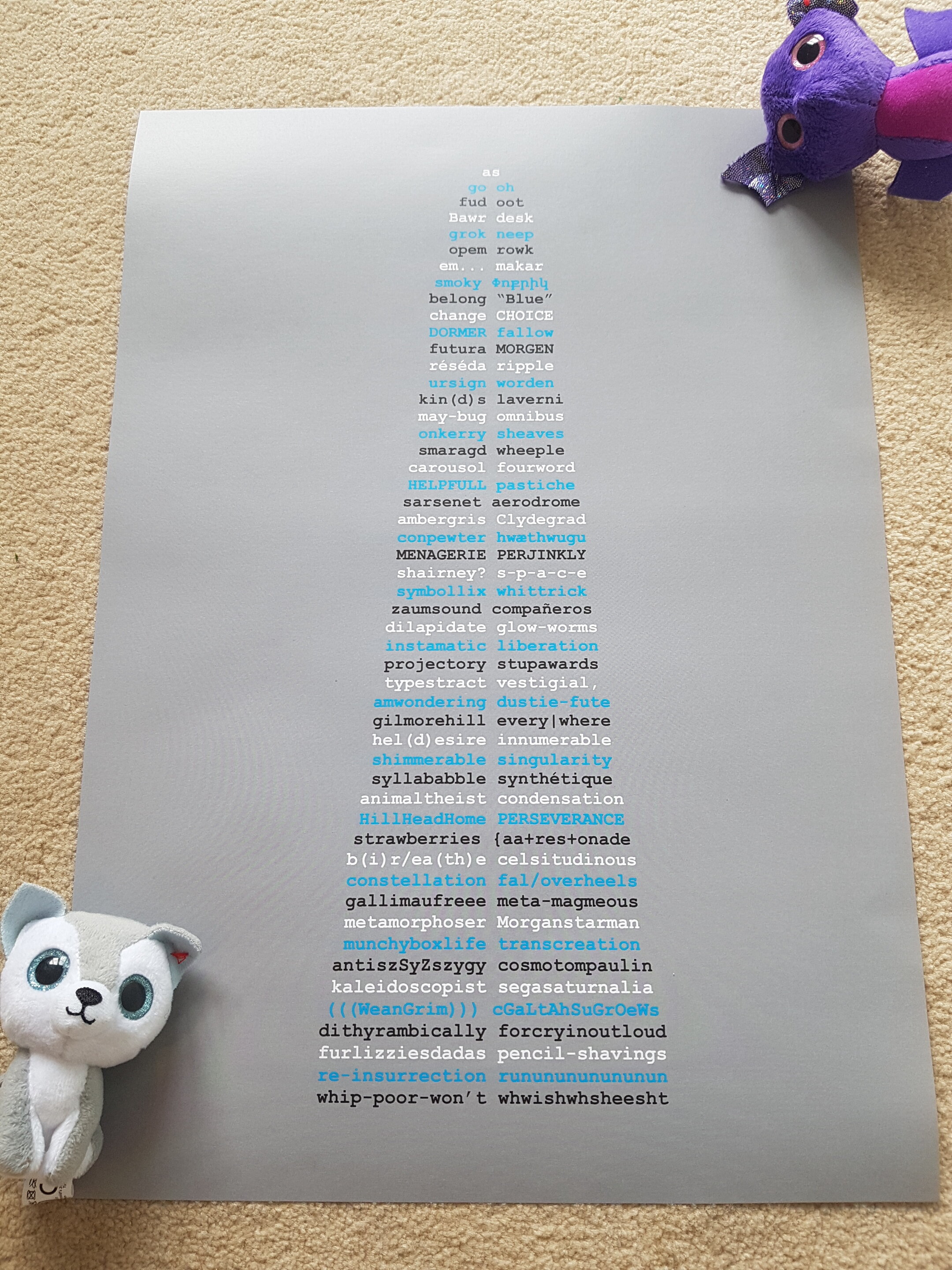Such a pleasure to have been a tiny part of the 101 WORDS FOR EDWIN MORGAN CENTENARY concrete poetry POSTER OF 101 ONE WORD POEMS, edited brilliantly by Julie Johnstone and Greg Thomas.
“101 poets, artists, publishers, editors and researchers were invited to send a word or a one word poem for Edwin Morgan on the occasion of his centenary. This poster is published on what would have been his 101st birthday, 27 April 2021. The contributors were given the following instructions: Each “word” must be a straight horizontal line, fifteen characters maximum in length (no minimum length), and must not include any spaces. Each letter and punctuation mark counts as a character (think of it as having fifteen presses of a typewriter’s keys to work with, except for the return key and space bar). The poster design is based on an initial arrangement of words by character count, with each group of words then arranged in alphabetical order.”
My word was URSIGN, check out all contributors and more info https://juliejohnstone.com/edwinmorgan/





